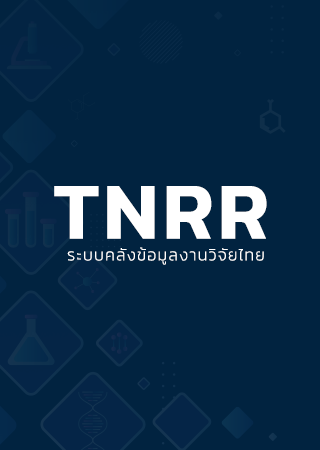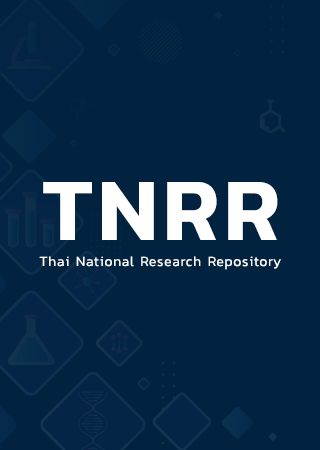Description
การเคหะแห่งชาติในฐานะที่เป็นรัฐวิสาหกิจต้องประสบปัญหาการบริหารงานเพื่อตอบสนองหลานวัตถุประสงค์ (Multiple Goal) ซึ่งอาจมีความขัดแย้งกันในเชิงปฏิบัติ กล่าวคือ การเคหะแห่งชาติจัดตั้งขึ้นด้วยวัตถุประสงค์เชิงสังคมเป็นหลักมิได้หวังผลทางกำไร แต่รัฐบาลเองก็มีนโยบายที่จะให้รัฐวิสาหกิจสามารถอยู่ได้ด้วยตัวเองเพื่อให้ไม่เป็นภาระงบประมาณของรัฐ จึงทำให้การประเมินความคุ้มค่าของโครงการพัฒนาที่อยู่อาศัยของการเคหะแห่งชาติจำเป็นต้องพิจารณาให้ครอบคลุมทั้งวัตถุประสงค์เชิงสังคม (Social Objective) และเชิงเศรษฐศาสตร์ (Economic Objective) เพื่อเป็นแนวทางให้ผู้กำหนดนโยบายสามารถตัดสินใจเชิงนโยบายได้อย่างถูกต้อง
ดังนั้น การเคหะแห่งชาติจึงได้ร่วมกับบริษัท ไบรอัน เคฟ (ประเทศไทย) จำกัด ทำการศึกษาและประเมินความคุ้มค่าของการพัฒนาที่อยู่อาศัยตามนโยบายรัฐบาลของการเคหะแห่งชาติ โดยอาศัยการประเมินความคุ้มค่า หรือ VFM (Value for Money Evaluation) และการวิเคราะห์ผู้มีส่วนได้ส่วนเสีย (Stakeholders Analysis) ภายใต้ "โครงการประเมินความคุ้มค่าการพัฒนาที่อยู่อาศัยตามนโยบายรัฐบาล ในระดับผลผลิตและผลลัพธ์ และประเมินผลการะทบและความพึงพอใจของผู้มีส่วนเกี่ยวข้อง"
ผลจากการศึกษาพบว่า โครงการพัฒนาที่อยู่อาศัยของการเคหะแห่งชาติมีประสิทธิผลในเชิงสังคม สามารถช่วยให้ผู้มีรายได้น้อยได้มีที่อยู่อาศัยเป็นของตนเองกว่า 6 แสนครัวเรือน (ข้อมูล ณ สิ้นเดือนกันยายน 2555) ในขณะที่การประเมินประสิทธิภาพทางการเงินนั้นไม่สามารถที่จะสรุปผลได้ชัดเจน เนื่องจากมิได้มีการจัดทำแผนการประเมินโครงการก่อนเริ่มดำเนินโครงการประกอบกับโครงการมีระยะเวลาดำเนินงานต่อเนื่องยาวนาน และหลายโครงการก็ได้ดำเนินการแล้วเสร็จมาแล้วหลายปี ทำให้ข้อมูลขาดความสมบูรณ์ไม่สามารถประเมินผลได้อย่างชัดเจน ดังนั้น ในอนาคตการเคหะแห่งชาติควรจัดทำแผนการประเมินโครงการ ที่มีการระบุถึงวิธีการประเมิน ชนิดของตัวชี้วัดที่จะใช้ การได้มาซึ่งตัวชี้วัดดังกล่าว และเกณฑ์ในการประเมินผลก่อนเริ่มดำเนินโครงการ และหลังดำเนินโครงการ เพื่อให้สามารถทำการประเมินความคุ้มค่าได้อย่างเหมาะสมและมีประสิทธิภาพ
นอกจากนี้ การเคหะแห่งชาติควรจัดทำ "แผนแม่บทของการพัฒนาที่อยู่อาศัยเพื่อผู้มีรายได้น้อย" เพื่อให้การพัฒนามีทิศทางที่ชัดเจน เพิ่มบทบาทการเป็นผู้นำการเปลี่ยนแปลงเพื่อยกระดับมาตรฐานที่อยู่อาศัย และควรขยายธุรกิจต่อเนื่องเพื่อตอบรับความต้องการของลูกบ้านภายในและโดยรอบโครงการของ กคช.
ผลจากการวิเคราะห์ผู้มีส่วนได้ส่วนเสียที่เกี่ยวข้องกับการพัฒนาที่อยู่อาศัยตามนโยบายรัฐบาล ผ่านการจัดเก็บข้อมูลด้วยแบบสำรวจความคิดเห็น (Questionnaires) การสัมภาษณ์ผู้มีส่วนได้ส่วนเสียแบบตัวต่อตัว (Face-to-Face Interview) และการจัดประชุมกลุ่มย่อย (Focus Group) พบว่า ผู้ตอบแบบสอบถามส่วนใหญ่ค่อนข้างพึงพอใจต่อการดำเนินงานของการเคหะแห่งชาติ อย่างไรก็ดี การเคหะแห่งชาติควรรับฟังความคิดเห็นจากผู้มีส่วนได้ส่วนเสียในทุกภาคส่วน เพื่อช่วยในการวางแผนการทำงาน และเผยแพร่ความรู้ความเข้าใจต่อการดำเนินงานของการเคหะแห่งชาติ เพื่อรักษาความสัมพันธ์อันดีระหว่างหน่วยงานซึ่งจะนำไปสู่การสนับสนุนที่เพิ่มขึ้นในอนาคต
<br><br> National Housing Authority (NHA) has been operating under the pressure of multiple objectives that conflict with one another in practice. On one hand, it has to achieve its social objectives by providing affordable housing to low-income people. On the other hand, it has to achieve financial objectives and maintain their businesses in a highly competitive market with little or no support from the government.
In that regard, Bryan Cave (Thailand) was commissioned by NHA to conduct a comprehensive study on "Evaluation of Governments Housing Policy: Outputs Outcomes Impacts and Stakeholders Assessment" to assess the efficiency and effectiveness of NHAs housing programs under the policy direction from the government by using value-for-money method and to conduct a stakeholders analysis. The results will be used to develop recommendations for NHA to better meet the needs of customers and increase the satisfaction of stakeholders.
The study shows that NHAs housing programs are successful in term of creating social benefits from homeownership and stable housing of low-income people. As of September 2012, approximately 600,000 households live in NHA houses. Yet, whether they are successful in term of economic benefits and their value for money remains inconclusive. This is due to insufficient data because NHA did not integrate the program evaluation into the project plan and specify types of evaluating indicators beforehand. Besides, NHA housing programs usually take a long period of time, and each program is comprised of many development projects, of which some had been finished years before our study making it difficult to compile the data.
Thus, NHA should specify methods of the evaluation to be used before, during and after implementation, types of indicators, and evaluation guideline before undertaking a housing program.
Moreover, NHA should develop "a master plan for housing development of low-income people" in order to have a clear direction and well-articulated goals, and continuously expand its businesses to meet the customers and the community around NHA developments. NHA should change its role of being an "arm" or "tool" of the government to be a leader who set standards for the housing industry in Thailand and in ASEAN.
The result from the stakeholder analysis shows that most stakeholders are satisfied with NHAs operations. However, NHA should maintain the satisfaction level of stakeholders and encourage stakeholders to participate in and cooperate with NHA in order to ensure the satisfaction of stakeholders and those whom involved in NHAs operations.
Date of Publication :
02/2023
Publisher :
การเคหะแห่งชาติ
Category :
รายงานการวิจัย
Total page :
77012 pages
People Who Read This Also Read


